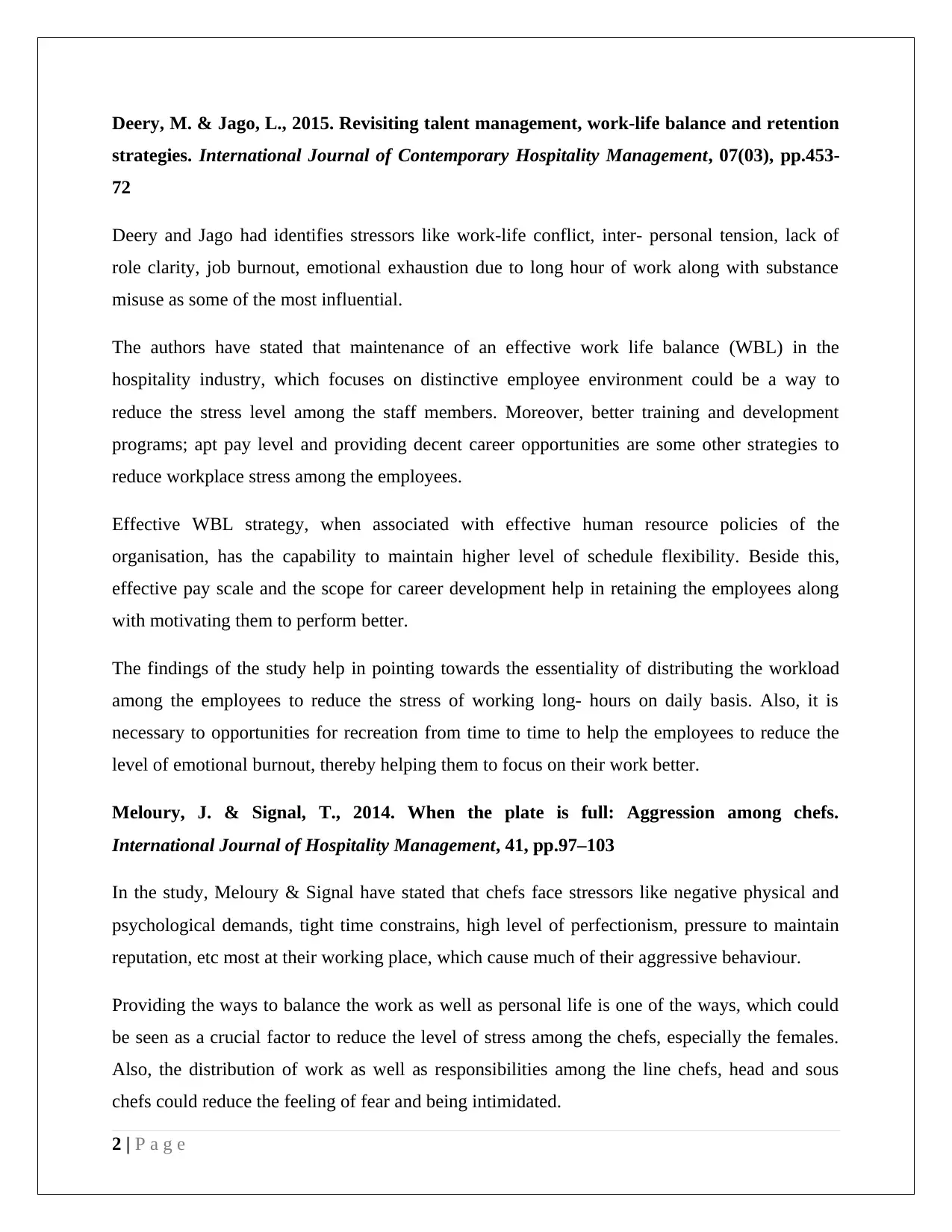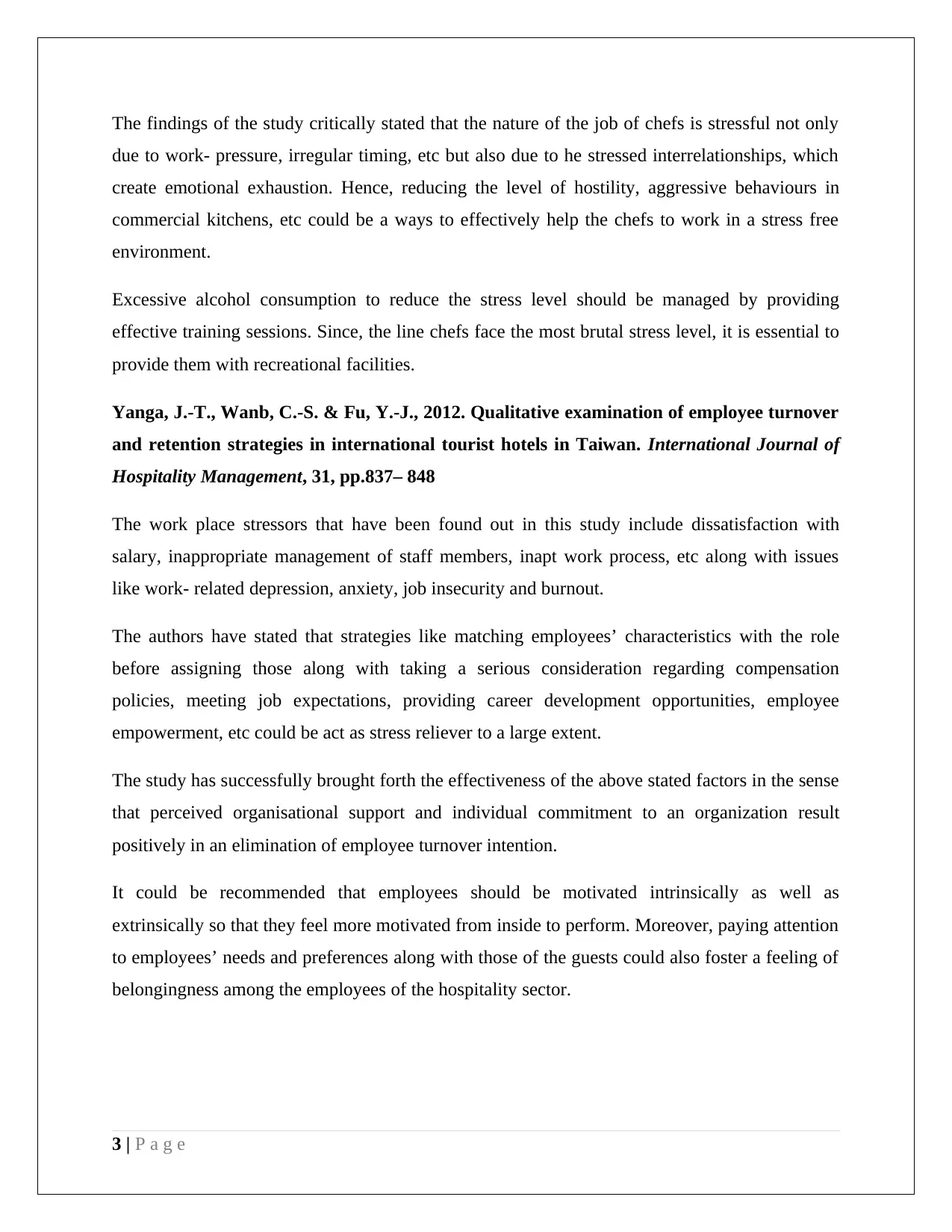Annotated Bibliography: Managing Stress & Retention in Hospitality
VerifiedAdded on 2023/06/07
|3
|748
|409
Annotated Bibliography
AI Summary
This annotated bibliography focuses on the critical issues of employee stress and retention within the hospitality industry. It highlights key stressors such as work-life conflict, interpersonal tensions, job burnout, and dissatisfaction with salary, as identified by Deery & Jago, Meloury & Signal, and Yanga et al. The annotations summarize research findings on strategies to mitigate these stressors, including promoting work-life balance, improving training and development programs, ensuring fair compensation, and providing career development opportunities. The included studies emphasize the importance of organizational support, employee empowerment, and addressing employees' needs to foster a sense of belonging and reduce turnover intention. Ultimately, the bibliography underscores the need for a holistic approach to employee well-being and engagement to enhance retention in the hospitality sector. Desklib provides a platform for students to access this assignment and other study resources.
1 out of 3










![[object Object]](/_next/static/media/star-bottom.7253800d.svg)